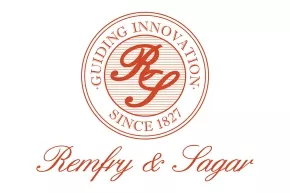- within Litigation and Mediation & Arbitration topic(s)
- in United States
- with readers working within the Law Firm industries
- within Litigation and Mediation & Arbitration topic(s)
- in United States
- with readers working within the Law Firm industries
- within Litigation, Mediation & Arbitration, Media, Telecoms, IT, Entertainment and International Law topic(s)
In a case involving trade secrets, the Delhi High Court came to the aid of a litigant, HT Process Controls Private Limited, to restrain an ex-employee from misusing confidential information acquired during the course of employment [HT Process Controls Private Limited v. Ankur Gupta & Ors., CS(COMM) 560/2024, Delhi High Court].
Background
The plaintiff, HT Process Controls Private Limited, is a leading Indian company manufacturing special purpose machines for the oil and gas industry. Amongst its products are automatic LPG (liquified petroleum gas) carousal filling machines and robotic loading and unloading systems for cylinders. Clients of the plaintiff include reputed companies such as the Indian Oil Corporation Limited (IOCL), Bharat Petroleum Corporation Limited and Hindustan Petroleum Corporation Limited (HPCL).
Through homegrown R&D efforts, the plaintiff developed an 'Automatic Robotic Loading and Unloading System (of gas cylinders from transport vehicles)' which is the subject matter of this dispute. The specification and details of the system were captured in a confidential written 'concept note' in 2022 and the system was commissioned at several client's premises. The same year, the plaintiff also filed multiple patent applications to seek protection for this robotic loading system. Per the plaintiff, the technical know-how and proprietary information pertaining to this robotic system is a confidential trade secret and includes the following: the aforementioned concept note, technical drawings, specifications of the system and each of its components, bill of materials required to manufacture this system, the operations and maintenance manual and the directory of suppliers for specific components of this system.
Lawsuit
One Ankur Gupta was appointed to the post of Chief Manager (Automation-Robotics) at the plaintiff's organisation in mid-2021, and his terms of employment prohibited him from divulging any information, detail of trade, or any confidential information, technical data, or drawings relating to the plaintiff's products that came to his knowledge or possession for carrying out his professional duties. His job entailed writing the basic code for the loading and unloading operations developed by the plaintiff, to further improve and refine the code, trial and testing of the system at its developmental stages, on field testing at customer sites where the system was being installed, etc. In May 2023, Ankur Gupta left the employment of the plaintiff and joined one of its competitors - JRPT Automation Pvt. Ltd. Upon scrutiny of his laptop by the plaintiff, it was learnt that Ankur Gupta had emailed details of the plaintiff's proprietary robotic system such as component details, bill of materials, etc. from his official email address to his personal address. He had also emailed himself the concept note – to which he had gained access through fellow employees under the false pretext of requiring it for use on behalf of the plaintiff.
Aggrieved at the loss of its confidential and trade secret information, the plaintiff issued a show cause notice to Ankur Gupta, in response to which he denied all allegations. The plaintiff also initiated criminal complaints separately. Meanwhile, it emerged that JRPT Automation Pvt. Ltd. had filed pre-grant oppositions against two of the plaintiff's patent applications connected with its robotic loading and unloading system.
Court's ruling
Though currently India does not have a sui generis trade secret legislation, Indian courts recognise the significance of trade secrets and have provided guidelines for their protection. Judicial rulings, such as those in Bombay Dyeing v. Mehar Karan Singh and Niranjan Shankar Golikari v. Century Spinning and Mfg Co Ltd, specify criteria for identifying and enforcing trade secret rights. These include:
- the information should be kept confidential;
- there should be a commercial utility attached to such information; and
- the owner should have taken specific steps to protect the information and maintain its confidentiality.
An analysis of recent jurisprudence on the subject matter suggests that while courts are reluctant to enforce agreements that unreasonably restrain trade, they uphold the principle of protecting confidential information through equitable means until perpetuity.
In this instance, the Delhi High Court was convinced that a prima facie case had been established by the plaintiff and issued an ex-parte order of injunction restraining the ex-employee Ankur Gupta as well as his new employer (JRPT Automation Pvt. Ltd.) from utilising and disclosing the plaintiff's confidential and trade secret information.
The court took the view that since Ankur Gupta was prohibited under the terms of his employment to divulge confidential and trade secret information, the conduct of emailing the plaintiff's proprietary documents to himself, to which he neither had access nor the authority to utilise, was culpable. The fact that he had joined a company who had now opposed the plaintiff's patent applications was also seen as suspicious. Accordingly, alongside the injunction, the court appointed local commissioners to conduct raids and seize devices such as laptops, phones, etc. (both personal and official) from the defendants that might contain the plaintiff's confidential and trade secret information.
Path Forward
This judgment demonstrates judicial willingness to take prompt action in order to safeguard trade secrets and reassures organizations of having effective recourse against dishonest ex-employees.
At the same time, the judgement also brings to the fore an interesting topic ripe for further discussion - the interface between trade secret information and patents. Dimensions of an invention can overlap with trade secret matter which allows for protection of undisclosed information regarding a patented invention. Patent and trade secret protections can thus work in tandem to protect valuable, proprietary information.
The 22nd Law Commission of India issued a report titled 'Trade Secrets and Economic Espionage' (along with a draft bill) on March 5, 2024, to recommend a sui generis legal framework to adjudicate claims related to trade secret disclosure. Commentators observe that such a law would offer companies clarity on protection of confidential information; increase industry confidence as well as enable technology transfer to India; and facilitate negotiation of free trade agreements, where the absence of a clear law on trade secret is often a point of concern. Notably, special exceptions are envisaged to protect whistleblowers. In the meantime, Non-Disclosure Agreements (NDAs), training and awareness programs, as well as robust data protection measures are a must to minimise the risk of unauthorised access and misuse of confidential information.
The content of this article is intended to provide a general guide to the subject matter. Specialist advice should be sought about your specific circumstances.


